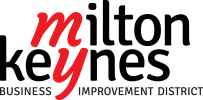A Business Improvement District (BID) is a business-led and business funded body formed to improve a defined commercial area. The benefits of BIDs are wide-ranging and include:
- Businesses decide and direct what they want in their area
- Businesses are represented and have a voice in issues affecting their trading area
- BID levy money is ring-fenced for use only in the BID area
- Increased footfall and spend
- Improved staff retention
- Reduced business costs
- Enhanced marketing and promotion
- Looking at infrastructure, pollution and movement
- Guidance in place shaping vision activities
- Facilitated networking opportunities with neighbouring businesses
- Assistance in dealing with the Council, Police and other public bodies
In the UK, the majority of BIDs exist in town and city centres, however they are also in industrial, commercial and mixed-use locations. The BID mechanism allows for a large degree of flexibility and as a result BIDs can vary in shape and size.
- The average size of a BID is 300-400 hereditaments, with some of the smallest having fewer than 50 hereditaments and the largest at over 1,000.
- Annual income is typically £200,000-£600,000 but can be as little as £50,000 per annum and as much as £2 million+.
- Legislation enabling the formation of BIDs was passed in 2003 in England and Wales (with subsequent regulations published in 2004 and 2005 respectively) and in 2006 in Scotland.
- BIDs were first established in Canada and the US in the 1960s and now exist across the globe, including in South Africa, Germany, Japan, New Zealand and Australia.
- A BID can only be formed following consultation and a ballot in which businesses vote on a BID Proposal for the area.
- The ballot is run by the local authority or outsourced by the local authority to a third party.
- All businesses eligible to pay the levy are balloted for a minimum of 28 days.
- In the UK, for a BID to go ahead the ballot must be won on two counts: straight majority and majority of rateable value. This ensures that the interests of large and small businesses are protected.
- There is no minimum turnout threshold but the average in a ballot is 47%
BID Levy and funding
- A BID is funded through the BID levy, which is normally between 1% and 1.5% of the hereditament’s rateable value, however there are some that have opted for higher levies, particularly in smaller locations with lower rateable values and industrial areas.
- Once a ballot is successful the BID levy is mandatory for all eligible businesses above the threshold set in the BID proposal. BIDs can choose to exempt certain businesses from paying the levy (and therefore from voting in the BID ballot). Many BIDs exempt the smallest businesses; and some exempt certain business sectors.
- BIDs are often successful at attracting funding in addition to the BID levy.
Governance and Management
- The vast majority of BIDs are not-for-profit companies limited by guarantee.
- BIDs set out how they will be governed in their BID Proposal or Business Plan and Company Articles of Association.
- Most BIDs are governed by a board made up of BID levy payers representing the BID area.
- BID management teams vary with the size, focus and budget of each BID but will generally encompass management, administration, business engagement, marketing and communications and project management.
Renewal
After nearly 5 years of continual investment and business support, businesses were asked to vote to continue the work of the BID in a renewal ballot. After the month-long ballot period, they voted to continue the BID for an historic 2nd term with a 95% majority and a strong mandate of support.
Highlights of the renewal include:
- Extensive surveying and consultation with Levy Payers to ensure maximum engagement.
- 60% of Levy Payers were engaged with and asked to comment on the BID’s activities.
- Business wanted BID to continue to deliver core services, marketing and event activities.
- A greater result than previous achieved despite challenges from Covid with a 95 % yes vote.
- Immense support from Local Authority, members and stakeholders ensured historic 2nd term.
- Ballot achieved a Rateable Value result of 97% support from high value levy businesses.
- Long term vision for 2027 gives the BID a strong mandate to deliver positive change in the city.
Public Health Section
Public health risks and wellbeing:
Guide to returning to the workplace
BIDs response to Covid – What your BID did during the pandemic
World Health Organisation – Disease Outbreak News (DONS)
MK Council – Get the latest updates on mental health and wellbeing from MKC
NHS – Advice on mental health and wellbeing from the NHS
MIND – Advice on mental health and maintaining wellbeing
Workplace safety – Guidelines to help keep your workplace secure



